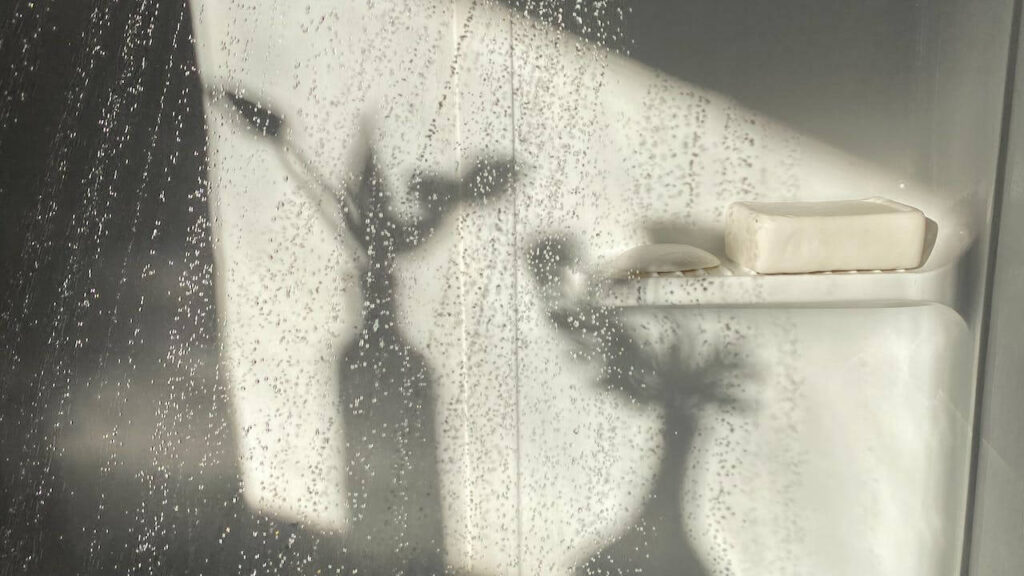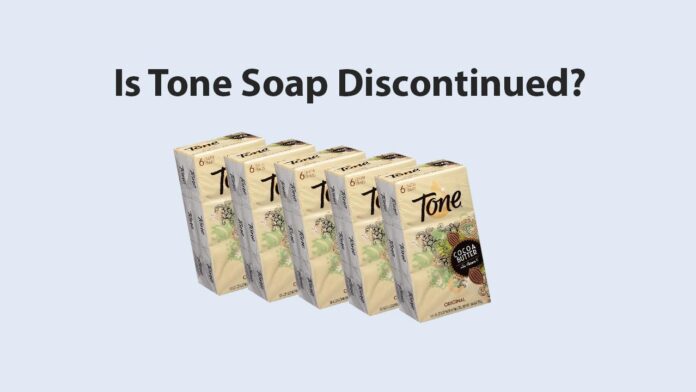For decades, Tone soap has been a staple bath product in households across America. With its mild formula gentle enough for the whole family, Tone soap quickly became one of the most popular bar soaps on the market after its introduction in the 1950s.
However, in recent years, rumors have been swirling that manufacturer Dial Corporation plans to discontinue Tone soap in 2024, leaving many loyal users wondering if they will soon have to find a new favorite soap.
In this post, we’ll take a look at the history of Tone Soap, discuss the reasons behind its potential discontinuation, and examine the impact this move could have on customers.
Tone Soap: Overview and History
Tone soap first hit store shelves in 1954 under its original name Teone soap. Manufactured by the Andrew Jergens Company, the soap was marketed as having an ultra-mild formula that was gentle enough for babies delicate skin yet effective enough for the whole family. With its light floral fragrance, Tone soap quickly became a popular choice for daily cleansing and bathing.
In 1968, Dial Corporation acquired Andrew Jergens and with it the rights to produce Tone soap. Under new ownership, Tone reformulated its soap to be more moisturizing by including key ingredients like cocoa and shea butter.
This new formula, launched in the 1980s, helped Tone gain an even bigger foothold in the bar soap market. For decades, Tone enjoyed strong brand recognition and sales thanks to its reputation for being a gentle, everyday use soap.
Is Tone Soap Discontinued in 2024?
Tone Soap has been discontinued according to reports publicly available and there is no option to buy the soap on the official website. Despite Tone’s long history of popularity, rumors have recently spread that Dial Corporation plans to discontinue the soap in 2024. So far, no official announcement has been made by Dial regarding Tone’s future.
However, experts believe lagging sales and changing consumer preferences are likely motivating Dial’s decision to potentially ax the classic bar soap. Over the past decade, bar soap sales have steadily declined as more consumers opt for liquid soaps and body washes. Many find liquid soaps and body washes to be more convenient, hydrating, and gentler than traditional bars.
With the bar soap category as a whole shrinking, Tone’s sales have dropped off significantly. From a business perspective, it seems Dial feels discontinuing Tone will allow them to focus more resources on their body wash products.
Why is Tone Soap Discontinued? Reasons

While no concrete reasons have been given for Tone soap’s discontinuation, industry experts point to several likely contributing factors:
- Declining bar soap sales across the market
- Growing popularity of liquid soaps and body washes
- Loss of younger consumers who prefer modern shower products
- Increasing competition from new soap brands
- Dial wanting to shift focus to its body wash products
- High costs of production and ingredients for a bar soap
- Difficulty differentiating Tone in a crowded market
Essentially, Tone soap is a product of its time and has struggled to evolve to meet changing consumer demands. Its simple, classic formula appeals most to older consumers familiar with the brand versus younger shoppers looking for soaps with added skin benefits.
You may also like:
Impact on Customers
The potential discontinuation of Tone soap could significantly impact its many loyal users. For decades, customers have turned to Tone for its gentle, no-frills daily cleansing. Many grew up using Tone and have come to prefer its light scent and ease of use over fussier bar soaps. These customers may now have to test new soaps to find a suitable replacement that meets their needs and preferences.
Switching soaps introduces the hassle of finding the right product match. Factors like scent, lather, feel on skin, and price point can make finding the perfect new soap an arduous process. Additionally, customers with sensitive skin may worry that other soaps will cause irritation or dryness compared to Tone’s hypoallergenic formula.
Beyond use, Tone soap holds nostalgic value for many as an iconic product. Discontinuing it means the loss of a beloved brand that evokes fond memories for generations of households.
Is Tone a Good Soap to Use?
Overall, Tone soap is considered a good daily-use bar soap thanks to its:
- Hypoallergenic, fragrance-free formula ideal for sensitive skin
- Balanced pH to help maintain skin’s natural moisture barrier
- Simple ingredients list free of common irritants like dyes and perfumes
- Pleasant light scent that isn’t overpowering
- The affordable price point for a bar that lasts a while
- Wide availability at major retailers and online
The main downsides are that it doesn’t provide extra skin benefits like moisturizing oils or exfoliants, and some find it doesn’t lather as richly as other bars. But for a basic, gentle, affordable soap, Tone is a solid choice.
What Bar Soap is Comparable to Tone Soap? Alternatives
Customers looking for a good Tone soap alternative may want to try:
- Dove Sensitive Skin Bar: Also has a fragrance-free, hypoallergenic formula safe for sensitive skin types.
- Vanicream Cleansing Bar: Free of dyes, fragrances, and common allergens. Developed by dermatologists.
- Cetaphil Gentle Cleansing Bar: Features a mild, non-irritating formula great for dry or sensitive skin.
- Basis Sensitive Skin Bar: Uses minimal, gentle ingredients with added shea butter for moisture. Unscented.
- Ivory Original Bar: A basic bath soap with a light scent and a simple ingredient list. Very affordable.
- Neutrogena Fragrance-Free Bar: Dermatologist-recommended for sensitive skin. Hypoallergenic and non-comedogenic.
Conclusion
The potential discontinuation of Tone soap in 2024 marks the end of an era for this classic bar soap. While no official reason has been given, declining sales and shifting consumer preferences likely fueled the decision.
For generations of customers, Tone soap has been a daily staple thanks to its gentle, fragrance-free formula. Replacing it will require finding a new soap that offers a similar mild cleanse without irritating sensitive skin. While Tone will be missed by many, there are fortunately comparable bar soaps on the market that can provide a smooth transition once Tone exits shelves.
FAQs
Why is Tone Soap so Expensive?
Tone Soap has seen steady price increases over the past several years, which has led many shoppers to balk at the higher costs. There are a few key reasons behind the rising prices:
- Manufacturing costs have gone up: Raw ingredients, packaging, shipping, and labor have all become more expensive. These increased costs get passed onto consumers through higher retail pricing.
- Reduced competition: With other brands discontinuing their bar soaps, Tone has less market competition, allowing them to charge more.
- Shrinkflation: Tone has reduced the size of their bars from 5 oz to 4 oz while maintaining the same price. This sneakier type of price hike means consumers are getting less product for their dollar.
- Brand loyalty: As an established household name, Tone enjoys strong brand recognition and loyalty among a core demographic who grew up with the soap. This brand equity allows Tone more pricing power without losing customers.
- Supply and demand: With scarcer availability and rumors of discontinuation, demand for the remaining Tone bars has gone up, also driving up prices.
Why is Tone Soap so hard to find?
There are a multitude of factors that have made Tone Soap increasingly elusive on store shelves, despite still being in production:
Tone has pulled out of big box retailers like Walmart and Target, relying more on grocery stores and pharmacies like CVS for distribution. This shrinks their retail presence. Tone’s parent company has likely allocated more manufacturing capacity to higher-margin products, reducing soap production.
Where Can I Get Tone Soap?
While Tone’s availability has certainly dwindled, it is still possible to find it in some stores if you know where to look. Here are a few places you may spot the iconic orange bars:
- CVS: This pharmacy chain still reliably carries Tone in many locations, though stock-outs happen. Shop early in the day for best selection.
- Online at Amazon and Walmart: Both retailers sell Tone online, often in multi-packs that offer a better value. Beware of third-party sellers inflating prices.
- Secondary markets: Try independently owned pharmacies, bodegas, and ethnic markets to find Tone gathering dust on shelves.
- eBay: As a last resort, lots of resellers offer Tone on eBay and other auction sites, albeit at inflated prices.
Does Dial Make Tone Soap?
Dial Corporation, makers of the popular Dial antibacterial bar soap, does not actually manufacture Tone despite this common misconception. Tone Soap is made by Henkel Consumer Goods, a German-based company and the same parent company behind brands like Right Guard, Soft Scrub, and Purex.
However, they originate from completely different parent companies. Tone was first introduced in France by Henkel in 1954 before being brought stateside. Dial came onto the market in 1948 under Armour Company, later acquired by Dial Corporation.



